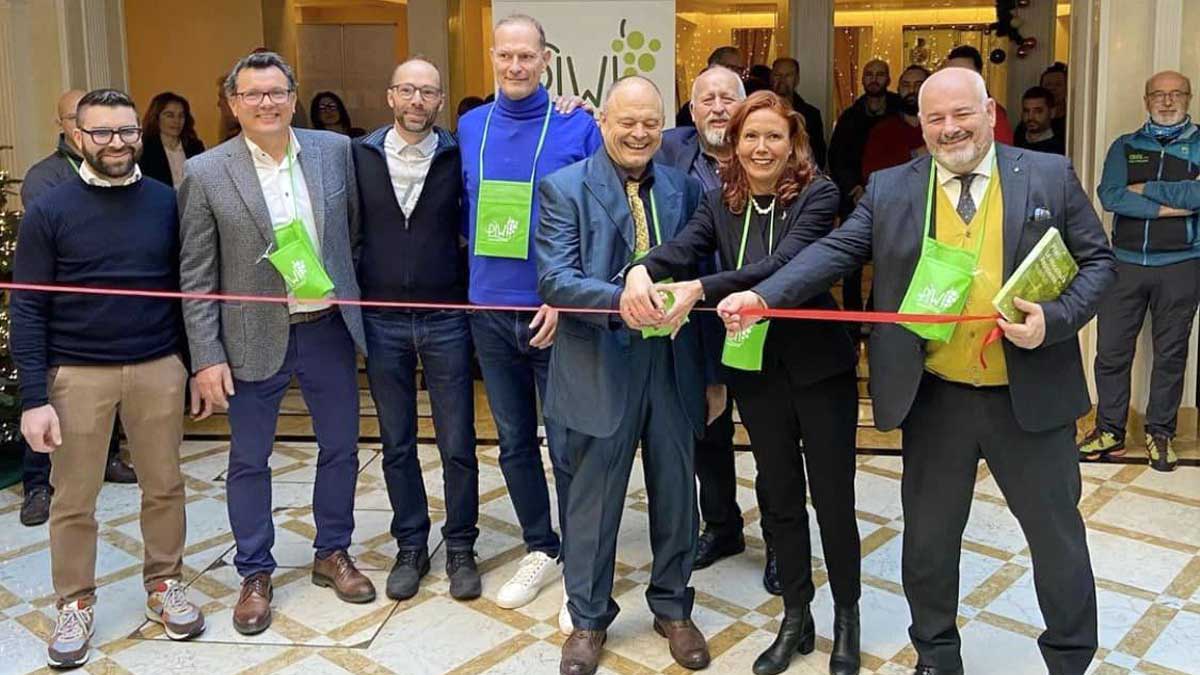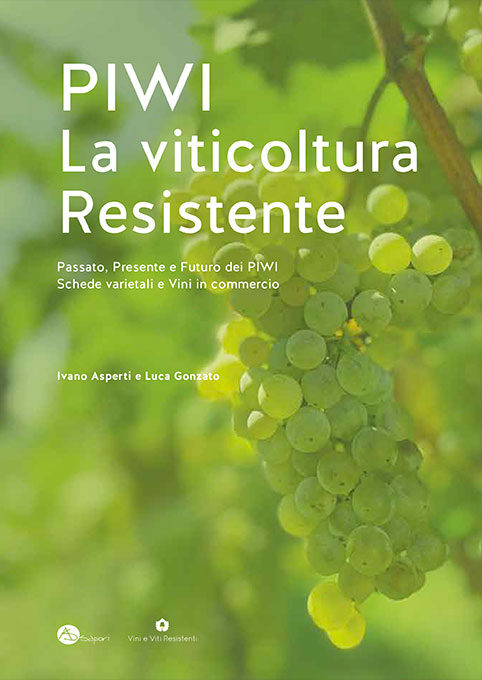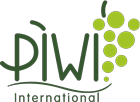PIWI Wine Award Austria 2024 – New / innovative grape varieties
PIWI International Wine Challenge 2024: Results and Results
More than 200 wines were tasted by a panel of experts at the PIWI International Wine Challenge 2024 on June 6 and the qualities were outstanding.
For further information and detailed results please visit the PIWI International Wine Challenge 2024.
Sweden says yes to the sale of wine from winemakers
Swedish wine producers had every reason to celebrate Sweden’s national holiday on June 6th.
The Swedish wine tasting began on Monday, and two days later the government opened the long-awaited farm sales.
First things first: after years of research, the Swedish government has put forward a watertight proposal to allow farm sales - that is, allowing winemakers to sell their wines to visitors. Sweden has had an alcohol monopoly since 1955, and the issue has always been controversial, but with the increasing number of commercial winemakers and growing interest in domestic wine, the government has now put forward a third proposal that could become a reality in spring 2025.
PIWI Members' Trip & Delegates' Meeting
From the 08 – 10 August our annual member trip will take place again. This time we will go to the north of Germany with a detour to Poland. Here we will visit the PIWI Winery Schloss Rattey, one of our members, and take day trips to the Baltic Sea, visit the largest PIWI winery in Poland in Baniewice and have plenty of time to exchange ideas with other members of PIWI International.
Current questions in viticulture and grapevine breeding
on the occasion of the 100th anniversary of birth of prof. Vilém Kraus
Current questions in viticulture and grapevine breeding
14th – 15th August 2024
Faculty of Horticulture in Lednice
PIWI areas in Germany
Text: Barbara Richter (M.Sc.), Andreas Stutz, Sabrina Stutz – Source: German winegrowing 9/2024
PIWIS – How the vineyards of the individual varieties have developed.
In Germany, a total of 1,135 hectares were planted with the top 10 white PIWI grape varieties and 1,790 hectares with the top 10 red PIWI grape varieties in 2022. This makes a total area of 2,925 hectares of the top 10 white and red varieties and corresponds to a share of 2.8 percent of the total German vineyard area of 103,391 hectares in 2022.
2 PSM treatments are sufficient even in case of high disease pressure in Muscaris and Souvignier gris
«The Grangeneuve organic winery in the Dordogne is managed by the department's Chamber of Agriculture as part of the Dephy network.
In 2018, winemaker and owner Anthony Castaing planted the first resistant grape varieties: Muscaris and Souvignier gris.
In the last two vintages, 2022 and 2023, two copper and sulphur-based treatments were carried out on these vineyards. His overall indicator for the frequency of plant protection treatments is 1.56. "This is a great advance in plant protection and a reduction in workload, even in years with strong downy mildew pressure like 2023," he notes.
On the other hand, "it is no longer possible to go on holiday in the last two weeks of August". In 2022, for example, the Souvignier Gris was harvested on August 24, well ahead of the Sauvignon gris, the reference grape variety in the monitoring carried out by the CA24.
This "marked advancement of the phenological stages begins as soon as bud break occurs," says consultant Camille Delamotte during a webinar on the subject. In 2022 and 2023, Muscaris and Souvignier gris were in the "green point" or "leaf break" stage at the end of March. In 2022, the vines were affected by a spring frost on April 1. "This risk must be taken into account. These varieties are recommended for terroirs with little or no frost."
>>> Read also: First feedback on the resistant variety Souvignier gris»
Source: www.tema-agriculture-terroirs.fr
First feedback on the resistant variety Souvignier gris
First feedback on the resistant variety Souvignier gris
Its berries are pink, which is not very common among the most widely grown grape varieties in France. However, its greatest peculiarity is that it is resistant to powdery mildew and downy mildew. It has inherited this resistance from one of its relatives, the Bronner (the other is Cabernet Sauvignon). It is called Souvignier gris, one of the resistant varieties currently authorized in France.
The IFV can confirm that the Souvignier gris has at least one resistance gene against powdery mildew: Ren 3.
Swedish wine industry goes international
This summer, Sweden will have its own 1976-style ”Paris tasting”, setting Swedish wines against international ones. The tasting is part of the effort to market Swedish wine internationally. All under the name The Swedish Wine Tasting 2024.
PIWI ITALIA was founded
PIWI ITALIA was officially founded on Saturday December 2, 2023 during the “I Vini Piwi a Venezia” event.
The inauguration was attended by the new president Marco Stefanini , Head of the Department of Vine Genetics and Genetic Improvement – Research and Innovation Center of the Edmund Mach Foundation of San Michele all'Adige (TN), and the Vice President Riccardo Velasco , Research Director, part Center for Viticulture and Enology (CREA-VE).

PIWI regional councils:
Veneto: Daniele Piccinin , Azienda Agricola Le Carline di Pramaggiore (VE)
South-Tirol: Thomas Niedermayr – Hof Gandberg, Eppan an der Weinstrasse (BZ) – commissioned by Marco Stefanini
Trentino: Antonio Gottardi, Cantina La-Vis (TN) – Secretary and Treasurer
Friuli Venezia Giulia: Stefano Gri , Cantina Trezero, Valvasone (PN)
Lombardy: Alessandro Sala , Nove Lune, Cenate Sopra (BG)
Piedmont: PierGuido Ceste , Ceste, Govone (CN)
Contact: info@piwi-italia.it
Also present at the event were MEP Rosanna Conte and lawyer Stefano Zanchetta, who helped draft the statute.
At the end of the inauguration ceremony of PIWI Italia, the book “PIWI La Viticoltura Schießa “ by Ivano Asperti and Luca Gonzato presented by Professor Marco Stefanini.

Special thanks for organizing the event “PIWI WINES IN VENICE” goes to Venezia Eventi di Maria Botter .
Current podcasts from Diego Weber on the topic of PIWI
Podcasts by Diego Weber – WINE sells
32 PIWI varieties on the Moselle with Daniel Molitor from Viermorgenhof
In this episode speaks Daniel Molitor from Viermorgenhof about the cultivation of PIWI grape varieties on the Moselle and about various training systems such as minimal pruning and reverse training.
Vitiforst and natural wine on the export market with Jan Matthias Klein from Staffelter Hof
In this podcast speaks Jan Matthias Klein from Staffelter Hof about Vitiforst, natural wine on the Moselle and the current situation in the export market.
You can also find Diego's podcasts on Spotify
PIWIS 2023 – Another tough testing year!
Haidegger Perspectives Department 10 – Agriculture and Forestry
We believed that the growing year 2023, with its strong infection conditions for vine downy mildew, would remain an exceptional year. But 2023 taught us otherwise.
Ing. Wolfgang Renner
Conclusion
The past growing season has shown that robust "classics" such as Bronner, Muscaris, Solaris and, to a lesser extent, Souvignier gris can be relied upon. These developed optimally despite adverse weather conditions. New varieties that have been particularly notable for their good resistance to downy mildew in their first years of growth also give hope, such as Sauvitage or Voltis.


